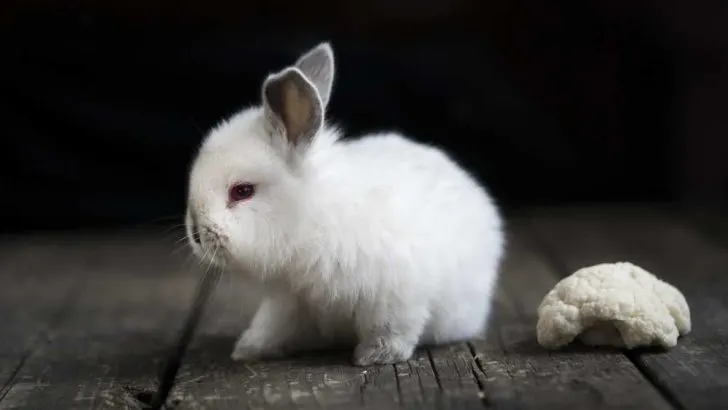Rabbits are great pets. They are not only adorable and plushy but are also highly adaptive to different environments.
Sadly their unique digestive system is not as adaptable, and you thus have to be very careful when feeding your bunny. The list of foods that can disrupt rabbits’ digestion or make them sick is quite long.
You would be surprised by many of the foods that are poisonous to your furry friend! Therefore, it is best not to make any assumptions but instead always check if a food you plan to introduce to your bunny for the first time is safe.
Today we’ll answer the question: Can rabbits eat cauliflower? Stay to the very end to find out whether you should cross this veggie off your bunny’s menu or not!
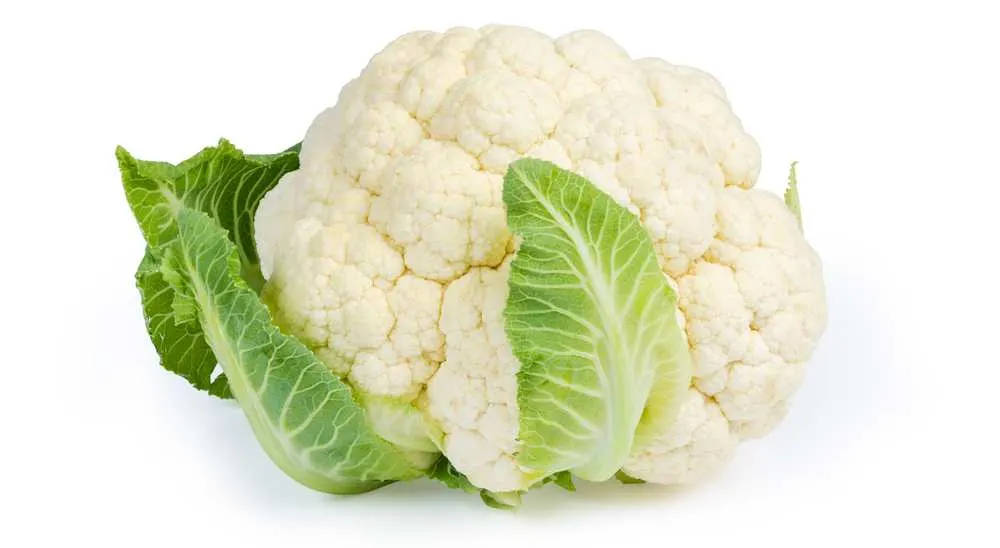
Is Cauliflower A Healthy Snack For Your Bunny Or Not?
Rabbits eat veggies, and cauliflower is a veggie, so the two should make a perfect pair. Is that really so?
The answer is not that simple. Namely, your rabbit can eat cauliflower but not without any restrictions.
Are you surprised? We were too.
Unlike cabbage, beets, celery, brussel sprouts, or radishes, the cauliflower needs to be limited. When eaten in moderation, it is a healthy snack, but cauliflower can cause bloating and gasses if your bunny goes overboard.
You need to give it a try to see how your bunny will react to cauliflower. Not all rabbits are created equal. Your bunny can perhaps munch up an entire bowl of cauliflower without having any digestive problems.
You need to remember one rule when feeding your rabbit: all the treats (and by this, we mean all the veggies) should only be given as an addition to hay and grass, which are rabbits’ staple food. Also, remember this (we said it once we’ll say it again!): always start with small portions and monitor your pet.
In conclusion, rabbits can eat cauliflower as part of a healthy diet as long as you know how often and how much of it to serve. Do not worry; we will tackle both of these subjects later on. Let us first find out what nutritional benefits this veggie can bring to the table.

What Are The Benefits Of Rabbits Eating Cauliflower?
Vegetables are generally very healthy for both humans and animals, and cauliflower is no exception. Without veggies in our diet, it would be much harder to find all the essential vitamins & minerals. Besides, veggies, along with fruit, are the number one source of fiber.
Remember our warning! Do not let your bunny eat every veggie you have lying around. Always check if something is safe to introduce to your rabbit’s diet.
Let’s get back to the super-healthy cauliflower and see what makes it good for your rabbit to eat?
Believe it or not, cauliflower is mainly made of water – 92% to be precise. We were really surprised by this fact since it is so firm and crispy. The good news is that this amount of water will help keep your rabbit properly hydrated.
What is the remaining 8% of cauliflower made of?
The remaining 8% of cauliflower is mostly fiber, protein, vitamin C, and potassium.
The following two tables show how rich cauliflower is in potassium and vitamin C:
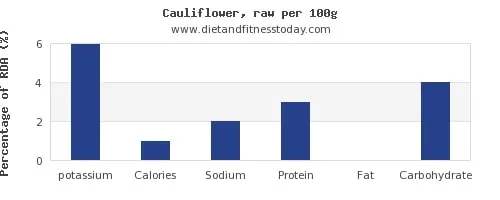
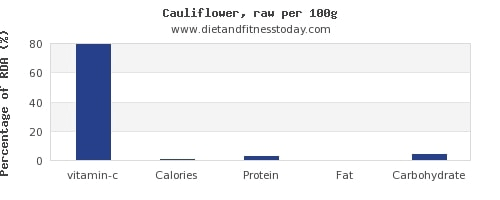
Your rabbit needs a high-fiber diet so that its digestive system can function as it should. Your rabbit’s gut and the bacteria working in it become most efficient when processing and extracting valuable nutrients from high fiber food. Unfortunately, fiber can be a bit hard to digest, and that can contribute to bloating and gasses we have mentioned.
High-fiber food contributes to the prevention of obesity as well. A high-fiber veggie will keep your furry friend satiated much longer than grass or hay and prevent overeating and weight gain.
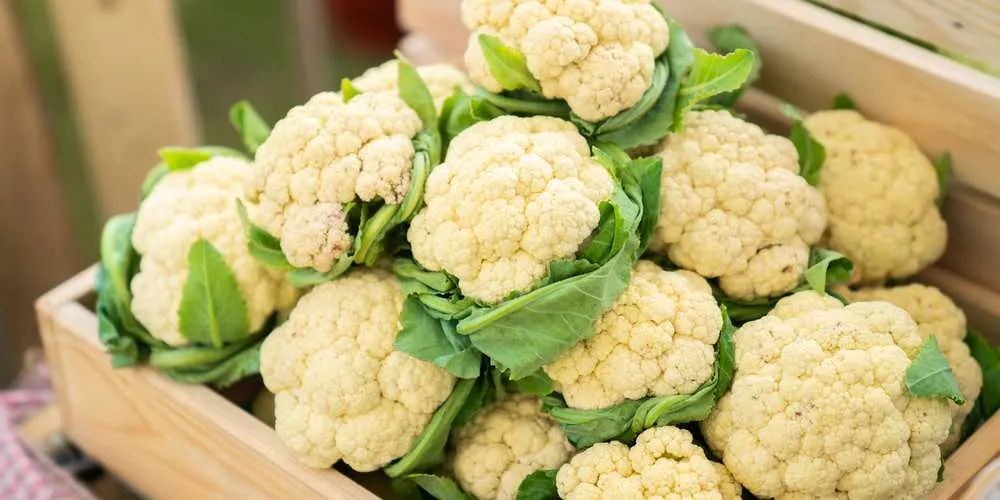
What Parts Of Cauliflower Can Your Rabbit Eat?
Many people believe that only the cauliflower head is edible, but that is not really the case. The truth is that your rabbit can enjoy the whole thing – leaves, florets, and stem too.
Each part of the plant is packed with the fiber your pet needs. As long as you do not overdo it, you can feed your bunny with any part of this veggie you see fit.
Not all the rabbits enjoy all three parts, though. Your bunny may be like that too. It should not worry you; just like you, your pet has its own taste and preferences. So if your rabbit enjoys only leaves or florets, respect that – it is perfectly fine.
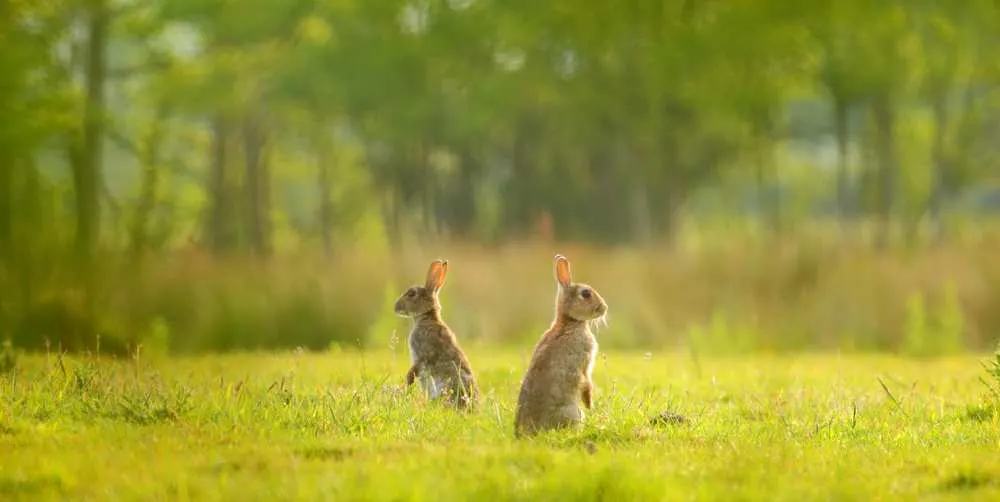
Do Rabbits Eat Cauliflower In Their Natural Habitat Too?
It should be your goal to make your bunny’s diet as close as it can possibly be to that of a wild rabbit. Such a diet will guarantee that your pet is getting all the right nutrients to develop properly and stay healthy.
So, Is Cauliflower A Veggie Rabbits Normally Eat Out In The Wild?
A lot of people think that rabbits eat only grass. This is because they are usually out in the fields doing that when people get a chance to spot them. However, bunnies spend a lot of time foraging for different vegetables and leafy greens as well.
Can Rabbits Find Cauliflower In The Wild?
Even though cauliflower crops are widespread all across the world, it is definitely not easy for a rabbit to get a hold of them since they are usually on private fields and in people’s gardens. In the USA, rabbits have the best chance to enjoy cauliflower in the state of California since about 90% of commercial cauliflower crops are grown there.
The good news is that cauliflower can be grown all year long and that increases rabbits’ chances of getting some. Cauliflower crops are generally most common in spring and autumn when rabbits are very active.
To sum it all up – if a wild rabbit gets a chance to enjoy some cauliflower – it will! So we can say that this veggie can be a healthy part of a wild rabbit’s diet. Therefore, if you are trying to keep your pet’s diet as natural as possible, cauliflower can be a part of it since it is a veggie rabbit naturally forage for and eat!
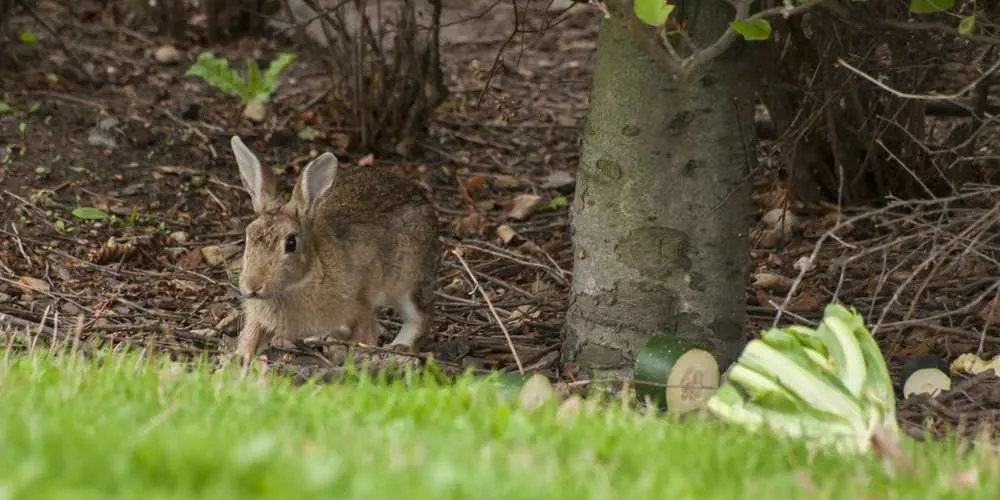
How To Introduce Cauliflower To Your Rabbit For The First Time?
We have already mentioned this. The rule of thumb is that you need to be very careful when introducing any new food to your pet, and thus you need to do it gradually.
Do it as slowly as possible and over at least a couple of weeks. In this way, your rabbit (and its stomach) will have enough time to adjust to the new food, but you will also be able to notice any allergic reactions or other issues.
The same goes for cauliflower. At first, let your bunny smell and taste a few florets or a leaf. See if your furry friend likes it or not. If he or she does like this veggie, you can continue serving it and increase the “dosage” with time.
Do not replace any other foods with cauliflower, no matter how much your pet likes it. Rabbits need a varied diet that will provide them with all the essential nutrients.
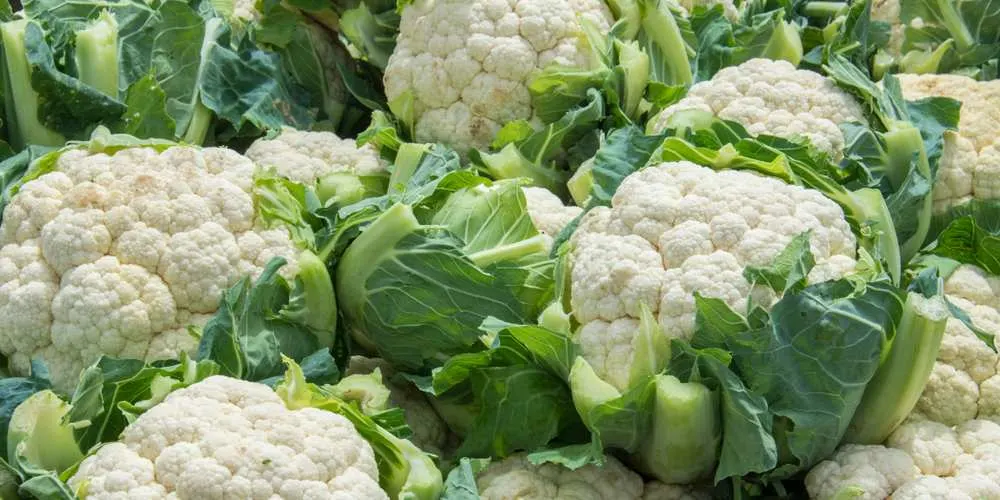
How Much Cauliflower Should You Give To Your Rabbit?
Your rabbit must have a diet made up of 80% grass and hay, just like wild rabbits do. Only 20% of your pet’s diet can be comprised of veggies or rabbit pellet mix.
Try to make these twenty percent as varied as they can be. Mix in all sorts of different veggies to ensure all the nutrients your rabbit needs are there.
So, Should Your Rabbit Eat Cauliflower Every Day?
Definitely not. There are so many different veggies out there, so why would you limit your pet’s diet to only one? Giving your bunny one and the same veggie every day would restrict the nutrient profile of his or her overall diet.
Our advice is to mix it all up! Make a different colorful salad every day and you will not only make your pet’s diet interesting & enjoyable but also secure your bunny’s health and well-being.
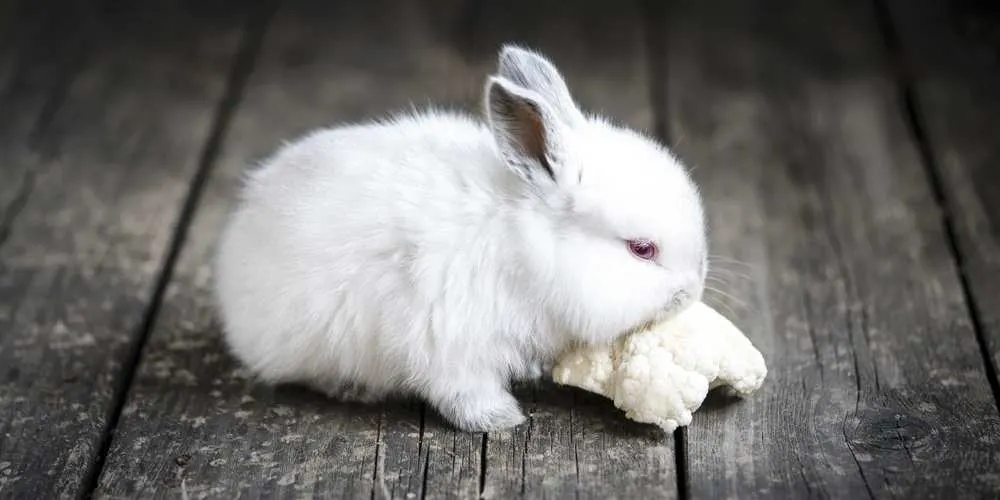
Summary
As long as you give it in moderation, cauliflower is perfectly safe for your pet rabbit. Moreover, the fiber and vitamins in cauliflower will be a great addition to your bunny’s diet.
All the parts of cauliflower are safe, so try introducing the stalks, leaves, and florets and see which of them your pet likes the best. Start slowly and monitor your bunny’s weight and changes in its health while introducing cauliflower (or any other food!).
Too much cauliflower can cause digestive upset, bloating, and gasses, so try not to overdo it.
You can share with us how your bunny reacted to this tasty vegetable; we’ll be glad to hear all about it!

